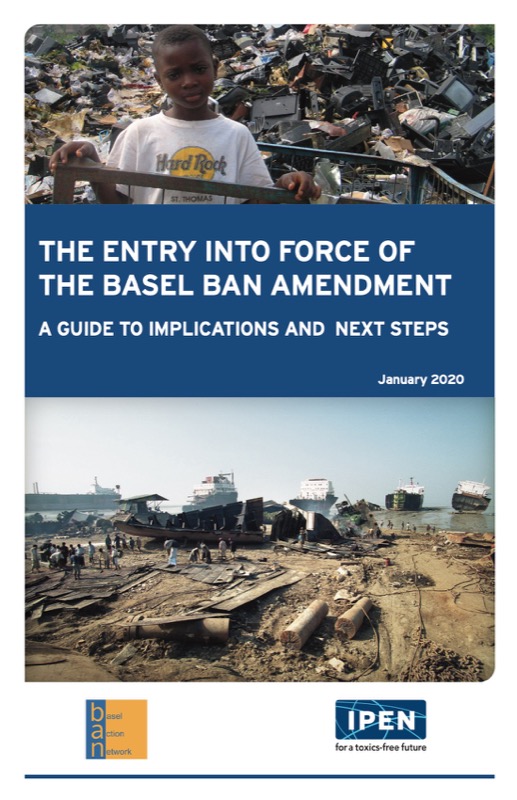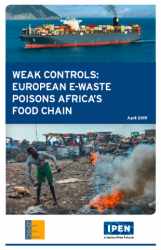The twelfth meeting of the Basel Convention Open-Ended Working Group (OEWG12) is taking place in a planned two-session approach due to the Covid-19 crisis: an online segment on September 1st - 3d and if possible, a face-to-face meeting in March. Recorded briefings on the set-up from UNEP are available in the UN languages here.
The online session will not take any decisions or negotiate any text but instead will focus on presentations of progress of the intersessional process, such as the various technical guidelines followed by interventions. More information about the online segment and meeting documents is available here and here.
Read IPEN's Interventions
View online side events
IPEN was well represented at the first segment of the 12th Open Ended Working Group of the Basel Convention along with delegates from scores of countries across the globe. The meeting sought to confirm schedules for advancing reviews of key technical guidelines for addressing some of the most critical global pollution issues in the world today including the transboundary movement of hazardous wastes such as plastic, mercury, and persistent organic pollutants (POPs). The advancement of the technical guidance is to allow their presentation for adoption at COP 15 of the Basel Convention in July 2021.
IPEN submitted a range of interventions calling for:
- Lowering of the Low POPs content Levels in the General Guidelines on POPs waste management as levels are currently too high and are allowing the most toxic chemicals on the planet to be recycled into children's toys and to pollute the food chain in low income countries.
- Promotion of non-combustion technology for POPs destruction in the same guidelines instead of incineration. Burning POPs waste generates additional forms of POPs such as dioxins and maintains the toxic cycle. Non-combustion technology does not produce these byproducts and is the cleanest technology for POPs waste destruction.
- Revising the D10 guidance on incineration to make transparent the vast CO2 emissions and dioxin contaminated ash problems with incineration which are contaminating global food chains instead of describing how to build and run a modern incinerator.
- Revising the D10 guidance on incineration to include pyrolysis and gasification which are widely known to be incineration technology promoted by the petrochemical industry as a solution to plastic waste pollution, but are completely absent from the guidance leaving parties in the dark about the impacts of these technologies.
- Aligning the mercury waste guidance of the Basel Convention with the mercury waste guidance of the Minamata Convention to ensure consistency and reduce the ability of mercury waste to escape environmentally sound management.
In the second segment of the online meeting scheduled for the 3rd of September, IPEN will present further interventions on plastic waste which will be uploaded to this site and the Basel Convention website.
IPEN is engaged in the intersessional work for most of the technical working groups and will therefore have a special focus on the agenda items relating to the technical guidelines on:
- POPs waste guidelines, including determining low POPs content limits
- Incineration
- Plastic waste
- E-waste and the distinction between waste and non-waste
- Mercury waste
Two other items that IPENers will keep an eye on are
- Whether the technical guidelines for waste lead-acid batteries should be updated
- Illegal traffic of waste
IPEN is also engaged in two side-events scheduled for Wednesday, September 2nd
- E-wastes: Closing the Remaining Loopholes, hosted by the Basel Action Network (BAN)
- Hidden Dangers in Plastic Waste: The Next Basel Challenge, hosted by a group of NGOs including BAN, GAIA and IPEN
See full side-event schedule and registration here.

The Basel Ban Amendment entered into force in December 2019. This guide discusses the implications and next steps related to its implementation.

Research from IPEN and BAN reveals dire human exposure and food chain contamination from highly toxic plastics in waste in Ghana, including toxic recycled e-waste shipped from Europe.
